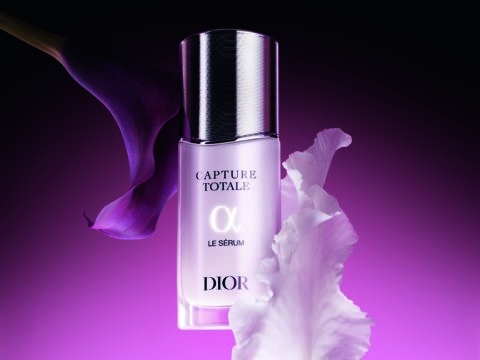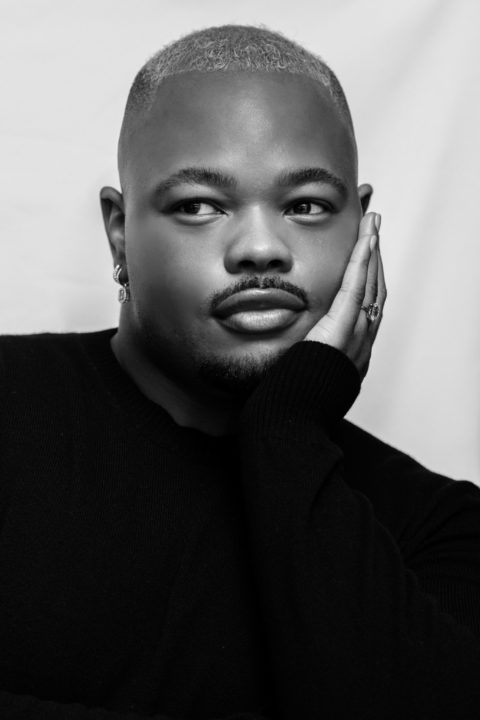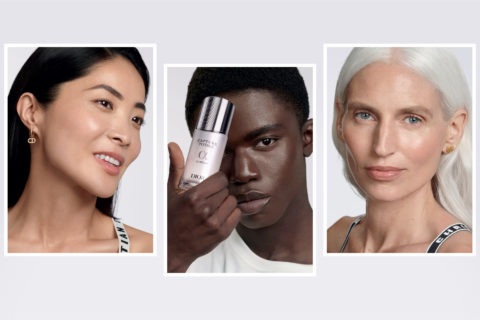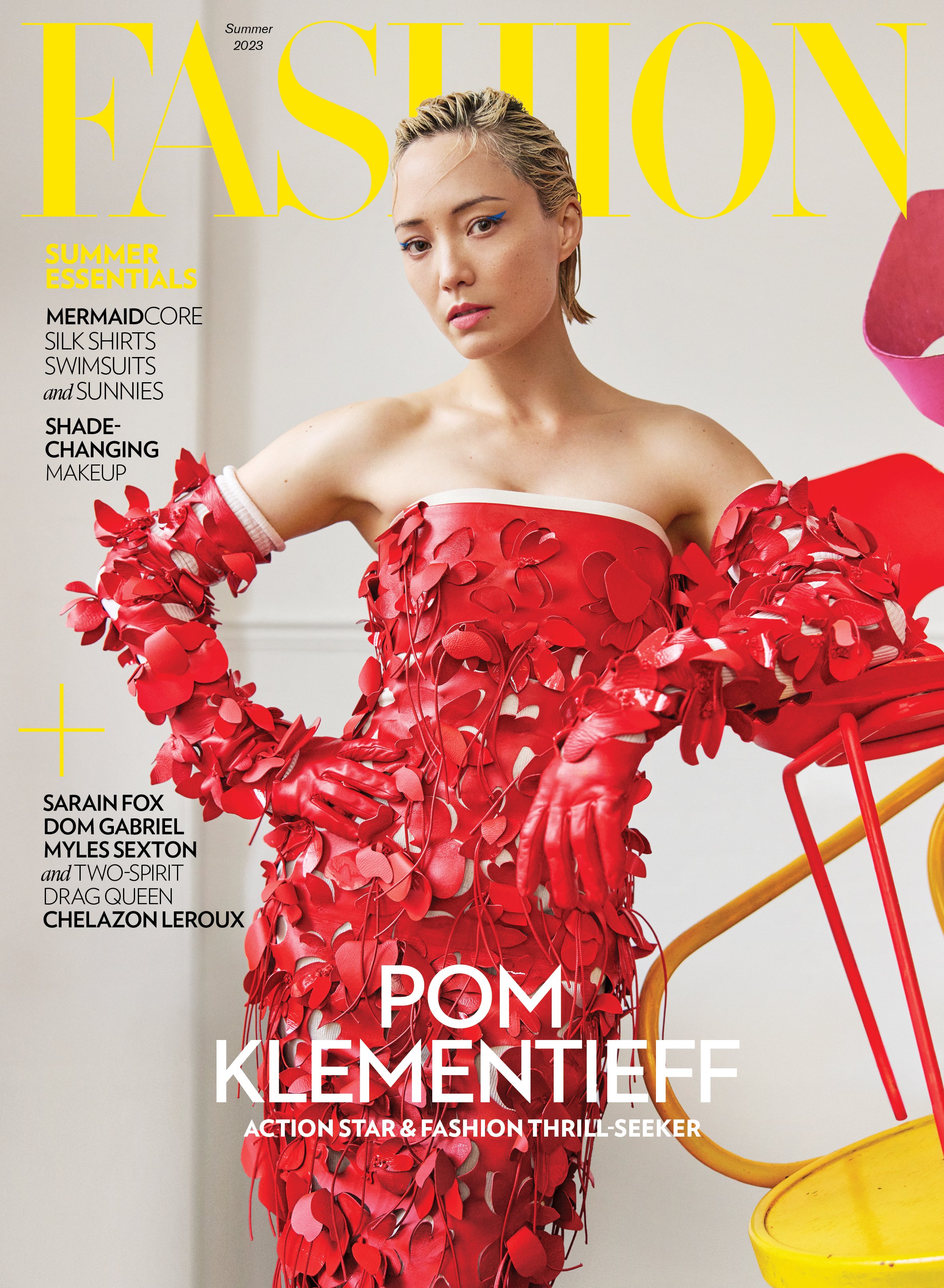Dior’s Capture Totale Le Sérum Is Better (and More Inclusive) Than Ever
And Dior Skincare expert Sean Garrette approves.
They say if it ain’t broke don’t fix it — but the reformulation of Dior’s iconic Capture Totale serum disproves that old adage. Ten complex formulas and 20 years of research on skin cells prove this French beauty brand is ace in the art of reinvention and< anti-ageing.
RELATED: There’s A Lot Going On in Dior’s Latest J’adore Spritz — In the Best Way
Since 1986, Dior’s Capture Totale line has been defined by its avant-garde advancements in targeting signs of aging, like skin texture and dullness. From spearheading the use of liposomes in cosmetics to developing innovative floral sciences, Dior has spent decades making unprecedented progress in the skincare sphere. In 2023, Le Sérum is the 10th edition of this popular formula, with ingredients sourced from lush pockets of the globe, including the depths of the Madagascan rainforest and Dior’s iris garden in Tuscany.
In January, I spent a day at New York’s picturesque Salon 94 with Dior Beauty, and it was there that I learned more about Le Sérum and the innovative platform used to bring forth the most inclusive iteration of the Capture Totale serum yet.
Housed in a sleek newly designed bottle, Madagascan longoza flower extract is Le Sérum’s star ingredient. Dior maximizes the power of this “phoenix flower” (which the brand has cultivated for 30 years) through multi-fermentation, while 85 molecules found within the flower fuel skin-regenerative properties and assist a process called anchoring — which Dior science believes may be the key to unlocking firmer skin.

“Every three weeks you have new cells in your epidermis, but with ageing, we know that we have a decrease of the cellular renewal,” Virginie Couturaud, Dior’s skincare director of scientific communication, tells FASHION. Our skin’s texture can be revived through re-anchoring by strengthening mother cells in our skin’s dermo-epidermal junction (the network that supports our outermost layer of skin) to increase firmness.
Two new ingredients are also introduced to the formula: Tuscan iris, which helps maintain skin’s radiance by forming a surface shield against damaging UVA rays, preserving the ecosystem where our mother cells live; and an active called hyaluronic poly-filler, which combines two hydrating hyaluronic acids with emulsifying polyglycerols for an immediate and lasting skin-plumping effect.
To test Le Sérum’s efficacy, Dior pushed the boundaries of inclusivity beyond the outdated Fitzpatrick scale, launching their internal T.O.T.A.L (Tones, Omnigender, Types, Ages and Location) testing platform to ensure the most inclusive results for all. By testing on individuals of over 100 skin Pantones across Asia, Europe and the United States from ages 18 to 70, Dior studies how each of these factors affect our skin and the ways we all age differently. The result is a product that is truly universal.

In my own routine, Le Sérum has become a one-product solution to a lengthy skincare regimen that follows nightly cleansing. In the weeks I’ve spent testing it, I’ve looked forward to the luxe experience that is applying Le Sérum, and the skin-plumping after-effects that endure. When I had the pleasure of chatting with Dior U.S. skincare expert Sean Garrette — whose skin is just as glass-like in person as his followers may imagine — I was assured that this serum could grow with me. Le Sérum is appropriate for all ages, with mature skin reaping its anti-aging benefits while users in, say, their mid-20s (like myself) soak up skin barrier support.
After I absorbed all of Garrette’s skincare expertise, he walked me through his path to Dior Beauty. While the skincare guru faced racial and gender discrimination in his search for work as an aesthetician early in his career, he was simultaneously growing his social media presence by sharing his knowledge of how to treat skin of colour. Last year, Dior appointed Garrette as the brand’s U.S. skincare expert.
“When I came to Dior, obviously, I jumped at the opportunity because it’s exciting, but I never want to be a token in a company or brand. And I never felt like that,” he expressed. “My Blackness was never put on display or felt like it was being sold to fulfill a quota.”
In perhaps what should have been a shocking statement but wasn’t, Garrette revealed that one of his most asked questions as an aesthetician is whether or not high-end beauty products “work” for skin of colour. As a woman of colour myself, I understood this sentiment. It is not uncommon for us to be excluded from having a seat at luxury beauty’s proverbial table, or to be an afterthought.
“When I started talking about Dior products [with clients], I would hear ‘Oh, that’s not for Black people!’ And I was like, ‘Well, it is,”’ he said.
As I sat across from him, I imagined the trail he would continue to blaze for diversity in the cosmetic industry. And I had one proud response: “It is now.”



